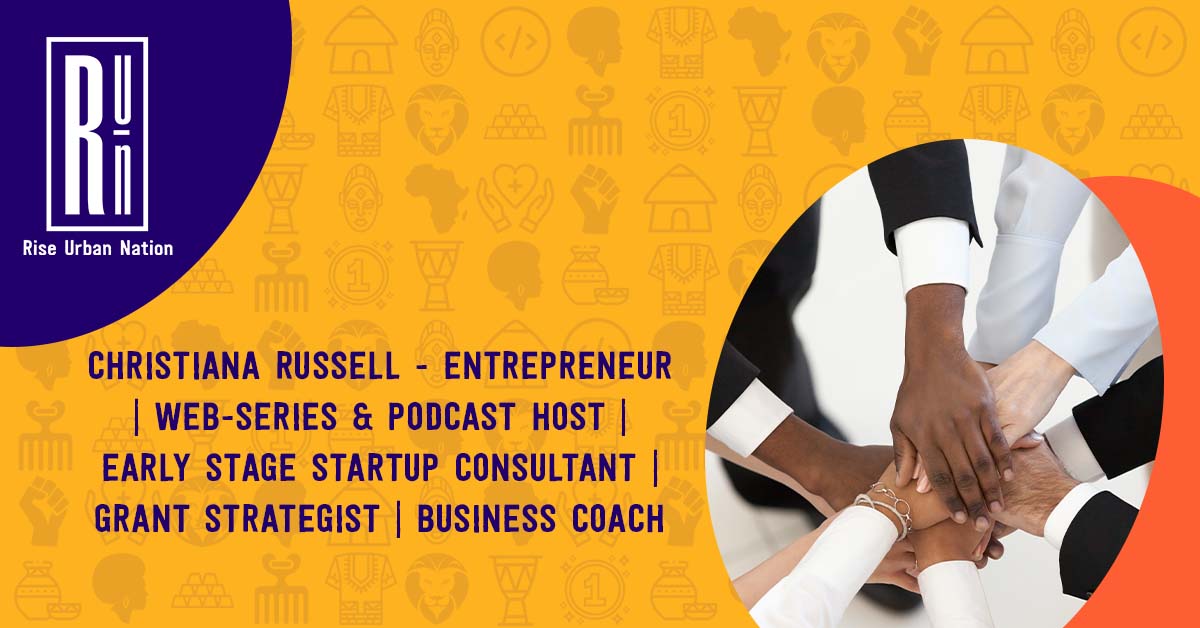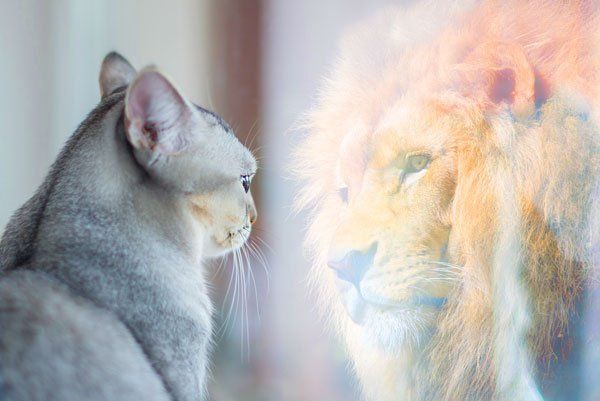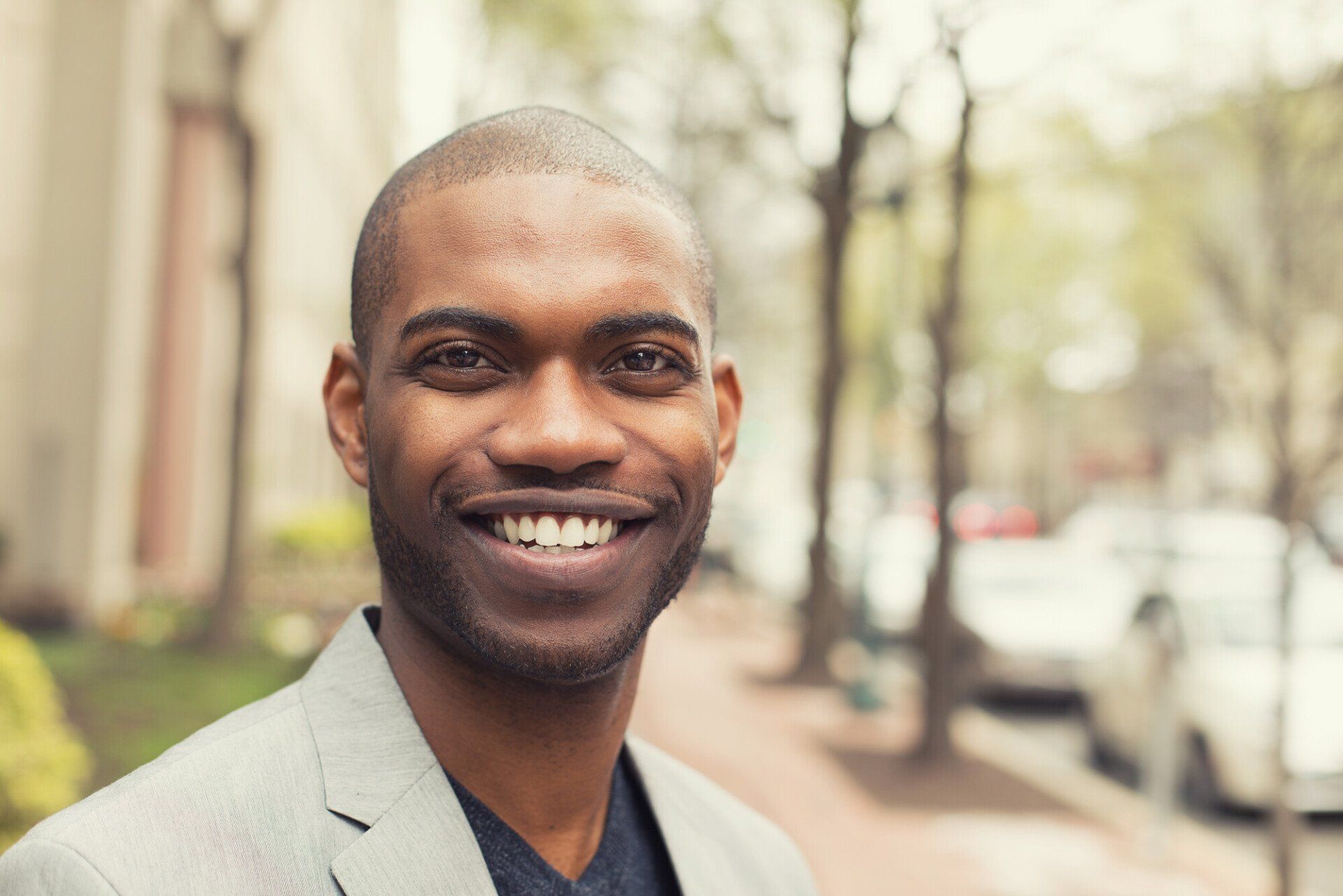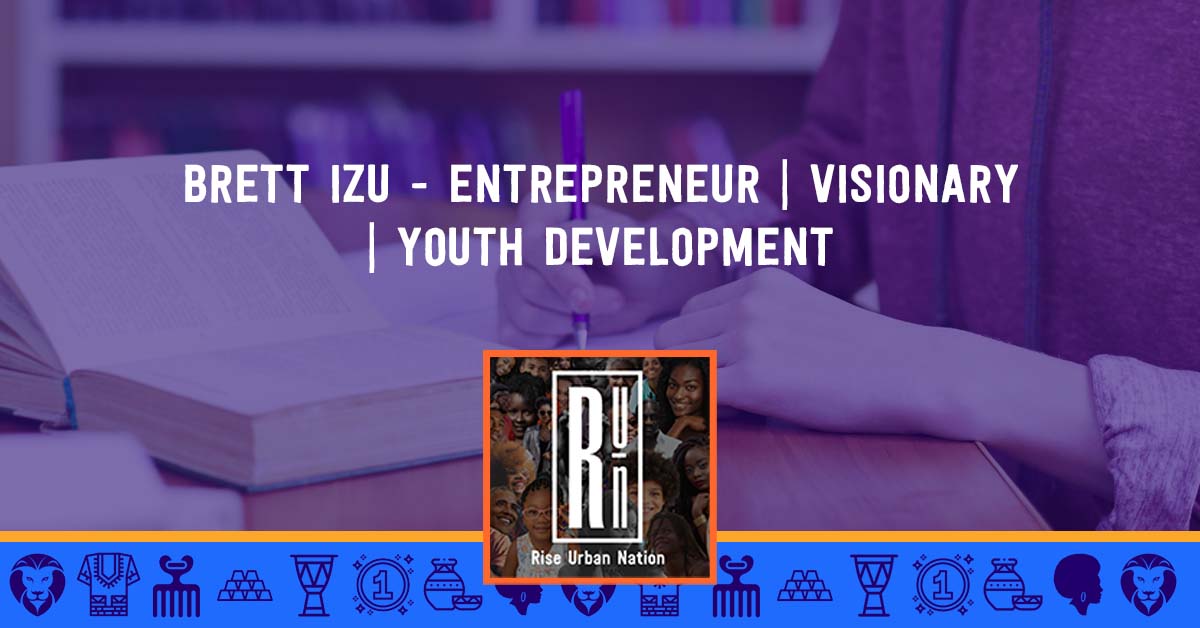Christiana Russell - Entrepreneur | Web-Series & Podcast Host | Early Stage Startup Consultant | Grant Strategist | Business Coach

Encourage yourself to strive for growth. Do you dwell on frustrations in your life or have you learned to trust the process? Do you know when to pivot during major life transitions? Christiana Russell, M.Ed is the owner of Mendedwing Consulting, LLC an agency that focuses on strategic planning and process management for small business owners and entrepreneurs. She believes in creating a safe environment that fosters support and empowerment is key. Tune into this episode to hear deep insights about different aspects in life such as self-esteem, self-worth, entrepreneurship, and growth.
Connect with Christiana!
Website: https://www.wethaplug.com
Email: mendedwingconsulting@gmail.com or christiana@wethaplug.com
Twitter: we tha plug 1
Facebook: W E tha plug
Instagram: @Iamchristiana1 , @the-cafecito-series, @_wethaplug
Clubhouse: Christiana Russell (@christianar)
LinkedIn: linkedin.com/in/christianarussell & we-tha-plug (business page)
YouTube: We Tha Plug (subscribe)
We are currently surveying our listeners (or viewers) to learn more about you. Please take a few minutes and visit our website and click on the 'Listener Survey' link found on the home page. Thank you."
http://survey.podtrac.com/start-survey.aspx?pubid=ON_VODqpc104&ver=short
---
Listen to the podcast here:
Christiana Russell - Entrepreneur | Web-Series & Podcast Host | Early Stage Startup Consultant | Grant Strategist | Business Coach
It gives me great pleasure to introduce the next guest on this episode. Every time I meet up with her, I want to sing. The one song that comes to mind now with Bilal is You Must Be My Soul Sista because she is truly my kindred soul sister. It was a blessing to have met her. We have aligned on a lot of different things. Ms. Christiana Russell is the Owner of Mended Wing Consulting, LLC, an agency that focuses on strategic planning and process management for small business owners and entrepreneurs.
Christiana's early years began in South Central LA but she was later moved by her parents to Tucson, Arizona, where she earned her Bachelor's and Master's in Education at the University of Arizona and Northern Arizona University. She spent the next ten years working in the mental health and prevention education industry, operating as an advocate and servant leader with the mission to combat social justice issues. She has found herself in the tech and innovation space.
She partnered with a good dear friend and brother of mine that we have had on the show, Luis Martinez, at We Tha Plug, to build a strong ecosystem that assures Pan-African and Latinx entrepreneurs and startups leverage every opportunity to advance from ideation, pre-seed, Series A funding, and so on. She believes in creating a safe environment that fosters support and empowerment is the key to sustaining present and future founders. Without further ado, let's tap into some knowledge with Christiana Russell.
---
Welcome to another episode of the show. I’ve got a special guest in the building for you. My girl, Christiana Russell, COO, We Tha Plug, and Cafecito. You’ve got so many titles. How are you, Christiana? Thank you for being on the show. I appreciate you so much. I know we had our brief dialogue. First, let's do the backstory. How did we first meet?
We met at Startup Week in 2018. That's where we met.
We did but we didn't have an in-depth conversation.
We carried it over to February of 2019, the confrontation from 2018.
It was at Balboa Park where we had the second conversation. We had a whole, long dialogue.
You're going to transition to different stages in your life. When that happens, you need to one be prepared. And the only way you can be prepared is by being open to it.
You were holding me accountable. We didn't know each other. I had met you but you rolled up on me like you were my cousin, and you hadn't seen me in five years. It was good. The last time we talked, I was like, “This person is going to be in my life forever. The end. Thank you.”
Everybody was like, “She said something about this book.” I remember I was looking forward to that. I will put you on blast now. What was the book?
This book is so didactic because it is based on my life. You know what I did. Journey of the Broken Sparrows is the title of the book that is yet to be produced. It was already written. It's just this sucker is personal, so it's a journey. I put out my eBook and course called Rabbit Hole Academy. Rabbit Hole is all about the transition in life.
I'm going a little bit off-script real quick but I want to make this point. One thing that is not communicated across the board is that there are outliers who get this from parents or leaders in their community. However, that was not hyper-focused for me. Throughout life, you are going to transition to different stages in your life. When that happens, you need to be prepared. The only way you can be prepared is by being open to it.
There's not too much you can do unless you are like the ant and you prepared for winter by storing up financially and spiritually. Some of the stuff we are going to be talking about is how do you store up to be prepared for when that transition happens? You can title that transition by anything. The storm takes on different forms, a death or job loss. There are certain things you can put in place to help prevent that cliff fall for you. For the most part, you have to be open and trust the process.
I'm in love with the process, as Luis would say. Throughout the years, we have learned to trust the process, go with the flow, and pivot when need to. We will talk about that a little bit as we go on a process. Who is Christiana? I'm going to leave it there and see where we go with that.
I credit who I am, not only my parents and my ancestors who have passed on. Some passed on before I was even born, after I was born, and after I was in my teen years. I credit these individuals for helping me understand early on in life about two things. There is something called self-esteem and self-worth. Self-esteem is something that is created by man. It's a word that's created to help build up. You can define it by helping to build up a person's confidence. There are things you can do in life to help build up your confidence.
When you think about self-esteem, it comes from doing something. For instance, it's 8:00 in the morning in San Diego. My self-esteem exists. The self-esteem part is me, getting the confidence to be on this show with you and having these conversations. When I'm operating out of self-esteem, I'm looking to you, Taryell, to affirm me. Tell me I'm doing good. I want you to nod. I want you to go, “Yes.” Build me up. The more I perform, the more you celebrate me.
In life, that's how self-esteem works. You go out, do good, get all these skillsets, build these internal attributes up, and then put them out to the world. They esteem you, and because they can esteem you, what else can they do? They can take that away from you. They give it to you, and they can take it away. My parents, ancestors, and these great leaders in my life always taught me that self-esteem is something that is developed and exists. What must co-exist and rise higher is your self-worth. Your self-worth is something that no man can give you.
It's something that comes from this intrinsic work that you are doing connected to your spiritual understanding, not religion but it is rooted because you have to have some type of faith-based understanding. Oftentimes, that's rooted in religion. As you progress, move, and grow, you can dissect it a little bit and go, “Why am I here? Who am I?” You start asking yourself these questions and start exploring. I am here on purpose. I am here by divine right.
I come from a higher source that has the ultimate ability to create whatever is needed for me to succeed in life. If I go back to, “Why am I here? What is my assignment?” that changes my answer to you, which would be, “I am an advocate and a servant leader.” Who is Christiana? She’s an advocate and a servant leader.
No matter where she goes in life and what relationships she's in, intimate, platonic, business or personal, she's going to show up as an advocate and a servant leader. That's who I know. Out of that is evolving human beings. I'm forever evolving because being a servant leader doesn't mean that I show up in this perfect way every time. I show up in different modalities. I use different modalities when I'm showing up but that is forever evolving because I'm working on myself.
You have touched on so many great things in there. I want to touch on that self-worth piece and belief system. It’s something that eludes a little bit of the conversation we had before we’ve even got on the show about limiting beliefs that we have in our communities, people and society. You and I have both done work from high school students down to adults. I'm going to get them on the show. I promise you, folks, at some point, but who are you?
Identifying that early with our youth and even adults is they need to do that self-worth routine and understand who they are so they can go out and make the change they want to see in the world from whatever mindset or however they see themselves and choose to show up. I don't want to get too specific on the career and job portions of it. I want to know because now you do Cafecito, We Tha Plug, and your consulting business. You are also writing books and programs. Before you transition to all these different things, here's what I want to know, what was your first job?
People may be so surprised by this but I came of age in the ‘90s. I was a kid in the ‘90s coming of age, and there was a whole different world that was happening back then. One thing that was not changing was how my parents chose to raise me. Does anyone who had Black parents have heard this saying before like, “I'm your mom. I'm your daddy. I'm not your friend?" They were tied to us, loving and friendly towards us but they were very intentional about how they raised us.
One of the things that were important for them was to raise us with work ethics. We always had some job at home before we were paid outside the home. My parents had a pay system in the home. The earliest I can remember was being four years old. We had chores in the household, and we would get paid based on that. My parents had this whole rubric system. It’s entertaining. My brother, Russell, which I like to call him, did not play.
To have a child set up the LLC, look at you.
You must be present in your journey and there are times where you will be in a fog because you'll wake up and you'll go thinking how you ended up there.
My baby is going to get paid. My first real paid job outside of the home was working for my dad's construction company. Both my parents are serial entrepreneurs. I come from a long line of serial entrepreneurs that found a lot of success. However, there were challenges financially for them that they struggled to overcome. He had won a contract for remodeling a series of duplexes. I was twelve years old.
One of the things that my parents taught me was work ethic. The owner was this 75-year-old Jewish lady named Rachel Zane. Her last name was Zane but I know her name was Rachel because my sister's name is Rachel. I don't even think she quite hit 5’0” but she asked my dad if he knew of anyone who would be willing because the remodel was done, and we had helped out with the remodel thing.
She asked, “Did you know of anyone that could come in and help get the place together?” My dad was like, “What's the work?” She was like, “Organizing things and cleaning.” My dad was like, “You can hire one of my daughters.” I was like, “I will help out.” I love interior design, painting, and all that. She was like, “Good.” She had a strong accent. I was missing some things because her accent was strong. I was half-listening, and I was twelve anyway. I showed up for my first official day. I had already been getting paid in my dad's company but this was somebody else. He was subcontracting me out.
I showed up on my first day, and I'm looking cute. She said, “You are not dressed quite properly for the job. Let me give you some older clothes that I have.” She came back out. I switched and changed into this older T-shirt that she had given me. She kneels down to the floor and gives me a brush. There's a box of spick and span and a water bucket. She gets down beside me. She's looking up at me like, “Come on.” I'm like, “What are you doing?” She said, “We are going to scrub the floor.”
I'm looking at this one like, “You want me? I haven't said anything yet.” She's looking at me and goes, “Let me show you one.” She says, “You get a little spick and span and a little water.” I'm like, “What’s a spick and span?” She looks up at me and goes, “What are you doing?” I said, “You want me to get on my hands and knees, and clean the floor?” She goes, “I’m sorry. Is this job too beneath you?” I’ve got a little embarrassed. She goes, “It’s because it's not beneath me.”
She goes on to explain how she owns these apartment complexes but there is not one job that she would not ask someone else to do that she would not be willing to do it herself. She proceeds to go on to explain to me the importance of hard work. That hard work doesn't come from pushing papers or answering phones. She was from an older generation, so she had the mindset of one, where a woman had a certain role but she broke out of that.
She owned all these apartment duplex spaces. She broke down to me what work ethic is and how it would carry me throughout life. At any point in my life, I will never forget that woman and what she taught me about never being too good to touch any type of work and never asking anyone to do something that you yourself aren't willing to do.
That was a good lesson. How do you feel that the lesson transitioned with you? It stuck with you but how has it served you and transitioned with you throughout your career?
It's one of those things to the point I made, I will never ask anyone to do something I'm not willing to do myself. Nothing is beneath me. Now that I'm in this startup entrepreneur space, there are things you have to do that you don't want to do. I come from a nonprofit and transitioned into a corporate background. I had assistance. I was a C-level suite in some of my position.
I had opportunities to delegate to people. You have to be willing to come up and down that ladder at any given time because you don't know where you are going to be in life, where you need to be back at the bottom. You never will start back all the way down at the beginning. You will have to step down to hit that reset again because you are learning skillsets. That's how it has transitioned throughout the course of my career.
That's the other thing I love about you. You have transitioned through a lot of different types of workspaces from the nonprofit sector to the corporate sector and entrepreneur startup sector now with the work that you are doing with We Tha Plug. A young girl or somebody that was sitting there 9:00 to 5:00 reading this now, and they were like, “I read Christiana's bio, and I love everything she said. That's what I want to do.”
What would you say were the steps you took to get into your career or start up from your consulting business to be a part of We Tha Plug? I know it's hard to put in steps because I know it was like this but what type of advice would you give to somebody that was trying to get where you have gone or where you are at?
The first thing I always say is you must be present in your journey, and there are times where you will be in a fog. You will wake up and go, “How did I end up here? I don't quite know it.” There are some pieces missing but I'm just here, and it happened. I endeavor to be able to tell you exactly how I’ve got here like I remember being twelve and doing that type of work.
What I tell people first and foremost is you need to have a plan. Under Mended Wing, the work I do is I'm a grant strategist. I help people understand how to go about applying for grants. Before they do that, they have to understand why they want to apply for it. We go through a series of questions. I also help people apply strategy to their transition, whether it's personal or professional. I have people I work with that are transitioning from one career. I have people that are coming from blue-collar going into white-collar.
I have people want from white-collar corporate coming into the startup space and needing to know how to transition. The first thing I tell people is to have a plan. The way you have a plan is you sit down and ask yourself questions. You should talk to yourself all the time. You should have conversations with yourself. This is someone coming from a mental health background. I know that may sound a little off but it's not. You should always have conversations with yourself and ask yourself, “What is it that I want? Why do I want it?”
Write it down. That's what is going to help and is a part of the ingredients for what you are baking. The purpose is already there but the whole part of this journey is manifesting it. That requires work like that. The next part is once you have written something down, you are going to open yourself up for mentors. You need people who are in that space.
When you were in college looking for an internship, in high school or middle school, in my middle school, they had a career day. People would come in and talk about their plans like, “I want to do that.” You want to have mentors. Social media is so vast. You must understand that a mentor is not necessarily someone you know directly and talk to every day. We have YouTube, Instagram, and all these different things. We’ve got Clubhouse. Anybody who's over eighteen get on Clubhouse. The Clubhouse is a 24/7 days a week seminar. You can go into any room and learn a lot.
Get mentors or people in your life who are doing work at a high level. I don't mean corporate jobs. I have mentors who are mechanics and are multi-millionaires. I have stay-at-home moms who are my mentors. Never see a mentor as someone that has a lot of money or has a high position. It goes back to their knowledge and how they have applied that knowledge to find success. You must be open to what your mentor looks like.
Your self-worth is something that no man can give you. It's something that comes from this intrinsic work that you're doing connected to your spiritual understanding.
If you are starting a business, you want to have someone that has already started a business and has found great success or has run a business very successfully, and you are able to extract. Write the plan down and connect with a mentor. From there, you will start to formulate. It will start to come together. You will mix in the ingredients. When you do land that first job or prior to that, you need to have interview questions for the job you are applying to or the career path you want to go down. It's a business venture for yourself.
Once you are in that space, advocate for yourself. No one should out-advocate you for you. That means show up for yourself. Every day, you should be thinking about, “How am I going to be my best self?” Whenever you are approached about a project, think about, “How is this going to advance me as well as everything should be reciprocity? How is this going to help me as well as the individual or company I am working for?” When you come out from that perspective, you are more likely to see success. For me, I sought success everywhere I went because I went in with that approach.
When I went into a company, I looked for my advocates and allies. I went to them and said, “This is why I'm here, and this is what I'm doing. This is the direction I want to go in. Can you help me?” Some people would say, “I can't but yes, we can.” You have to be willing to put yourself out there. This is something that I'm speaking directly to my people of color. There's this language that has taught us that it is understood that you need to be better than and twice as good as to even show up. We know this is true because there are many reasons why you see this truth.
I love my Gen Z-ers. I don't focus on that whole age and all that. What do I appreciate about my Gen Z-ers is they are saying, “Why are we doing that because that's the way it has always been? We are not doing it that way. We are doing it this way.” I love that because they are challenging it and pushing back, which then causes the rest of us to go, “Why is it we are doing it that way? We don't have to do it that way.” Show up for yourself and be willing to be vulnerable. You might get taken advantage of but hopefully, it's not for very long, and you are able to pivot and go, “This person is not here for me. Let me go another direction.”
There's some strength and vulnerability. I love that you mentioned challenging the status quo of how we normally do things. I don't know how many times we hear in government, nonprofit, and so forth like, “We have been doing it this way.” Why have we been doing it that way? Could you explain it to me? They were like, “It’s because that's the way we do things.” Could we possibly do it another way?
I’m like, “If it’s not broke, don't fix it.” You can always improve on something. No news is good news. That’s not good news. That's no news. We need to find out what the news is. There were lots of things happening out there rushing in my head, and I was like, “Challenge that.”
What's some advice you would give for someone who's trying to start their own consulting business or build a startup? Keep in mind that my audience is all Black and African. We are people of color. Don’t give me the White answer. Give me the right answer.
I didn't see myself in the startup space. I didn't see myself as an entrepreneur but I was open to transition, purpose, and my assignment. I knew it was going to take on different modes. It was going to be in different vehicles. Anyone who is looking and reading to this, and they are like, “This was a fun interview. There were a couple of things that resonated with me. I'm a business owner. I want to be a business owner. I'm 12, 55 or 95 years old,” there is always a place for you if you feel drawn to it.
Believe it or not, if we want to get again into the science of it, when we move our body in a different way that we never have before, we are allowing different neural pathways. We are allowing for the energy to go through. I don’t call it the nervous system because that is the trick. I call it the awareness system. That is one of my push. Because of the work that I do and everything, I want to have that talk with neuroscientists and stuff. One of my career goals is to have it changed from the nervous system to the awareness system. We should not be calling it the nervous system. It is the awareness system.
I get nervous just hearing the word nervous. It is a trigger like, “What is going on?” It is more of a stress trigger.
That fight or flight, norepinephrine, adrenaline, and cortisol, all of that is the nervous system, but I call it the awareness system.
It hits differently. When I say, “What are you saying?” We are like, “Let me be more alert and take it in.” What is happening? What is going on? How do I feel? I check in with the VIBE introspection. Make sure my breath is well, what am I embodying at this moment, and then let’s voice it. I almost feel like with VIBE, sometimes you have to start at I and then the voice becomes the last thing. I’m not sure if the acronym was written in order, but for me, as a leader, sometimes I do I, B, E, and then V. Is that correct?
It is always correct. I love what you said there. It is a good point for us to bring up for the readers. They are the god or the master. That is just a tool for them to use. I like to use acronyms because it helps me remember, but it doesn’t necessarily have to go in order. The last time we did that, we started with the I. The voice thing, because that is the thing we are going outward, that might be the last process for a lot of people. We need to breathe and embody some stuff before we go saying something out of our mouths.
A lot of people need to do that. I have been in alignment with that. This is a different type of journey. This is the first time I have ever spoken to somebody in your field and in your practice. What is some advice you would give to someone who is reading this who would like to start a career in your industry doing similar things to what you do or going on a similar journey?
Start your inner journey with the VIBE and always know that ultimately, you may find different people that you might want to learn from but never fall into guru mode. Never put people up on a pedestal. Sometimes, when we are dealing with meditation and these deep spiritual things, there is a tendency for some personalities for us to want to put that master or the sifu that we learned from up on a pedestal. They are just a person, too. If you learn from me, I’m just another human being like yourself.
Learn from people humbly but also have enough confidence that you already are that. There is a sweet spot. You don’t want to be pride and doubt. In the middle is where we want to be. We don’t want to be too prideful and we don’t want to be doubtful either. We want to find that sweet spot in the middle where there is humble confidence.
Find people who have a certain potency. With the different practices that people give you, you should be able to get something from them quickly. If it is real stuff, you should be to get something from it quickly. It impacts your life and you start to be able to quantify. This should not just be something in theory. You should be able to have quantified results in the real world that you are starting to have breakthroughs.
You could tell when you are in conversation with somebody whether it is real or it is something that is going to be a good lesson for you or something for you. I also tell people, “You are the master of yourself. Nobody can’t tell you how to be you, but you can still learn from others on how to improve yourself.” It is a give and a take. There is some synergy in that as well. What do you see in the industry? I know you want to talk to the neuroscientists and so forth. What do you think the future looks like for the work that you do? Is it building out a lab with these neuroscientists? What does the future look like? I feel like it is so vast and bright. What do you see it as?
I believe in the Sensual Emotional eXchange. We started meeting in the bedroom and we realized that we can relate in a way that is more expansive than the porn industry, more expansive than, “I put my penis in you and then move back and forth. That is all that sex is.” There is nothing wrong with that, but that is way more expensive than that and it can affect our consciousness.
If you want to move into the startup space, you need to do your homework. You need to understand who your customer is.
First, I will break it down with the two different industries. In the nonprofit industry, I have been saying this since 2013, and there were experts that had the foresight that was saying it a little bit before that. For nonprofits to survive, they need to be looking at social impact and social enterprise type of partnering, creating that within the organization, and understanding that you are a nonprofit but you should be making a profit.
You should have income in large amounts coming in, not just from these grants. You can see what happened these last couple of years how funding changed. Every time there's new leadership that comes in, it changes. For nonprofits, you need to have a strategy that includes social enterprise and social impact work that is connected to opportunities where you can partner with large corporations, especially in the tech space.
You need to be looking at that and ways where you can draw down revenue, not just from grants. You need to diversify. This is where I talked to my nonprofit clients. This is someone coming from the nonprofit industry. That's first and foremost. You all don't know this but my boy, T, here, and my business partner, Luis, are working on something that's going to revolutionize the way nonprofits access funding. I will leave it like that because it's top secret.
When we are looking at the tech industry, this is the next revolution that we are moving into. This is why it's so important that you, T, and many of us in this space are doing this work because it's not just one area. When we think of techs, that means we all need to code. I don't code. I'm not interested in coding. I would hate it. I would be the worst coder ever only because I know that's not my gift. You need to understand where you fit in. Please know that the industry is going to grow because customer service is needed.
Everything that you do regularly is going to be needed in the tech space. You have to be forward-thinking about how it's going to manifest. It's going to grow. Also, we are shrinking. Before COVID, people would think, “Overseas? It's so far.” What happened with COVID is, it brought everything right into our house and bedrooms. I see that everything is going to grow but you need to understand where you fit in, how you can show up as your best self, and find success in that space.
I resonate with all that so much because even what you said that last bit on how COVID brought the world together and made it that much smaller. My whole team helps operate and put together this show from social media. It’s national. I’ve got somebody in Nigeria and UK, all Black.
You are a perfect example of that. We went from having events in-person to no events in-person. Everything was virtual, and we exploded. All of a sudden, people over in Zimbabwe, Zambia, and Sweden is knowing who we are. These are Africans in all these different areas.
That's a beautiful thing how technology could do that and shrink the world. I know you mentioned a couple of them but give me all the projects you are working on and where people can find you.
I am a partner and COO at We Tha Plug. You can find us on WeThaPlug.com. It's a double entendre because it means two things. You need to plug into us, but also, We Tha Plug and you, the plug. We need that. We are what we are searching for, Black people. We are what we need. We need to plug in. Also, there's no competition. We cannot look at each other as competition, “You are doing a podcast? That means I can.” Once you tap into, We Tha Plug, you will also see other projects. I'm going to the two, which is the Cafecito series, a web series where I interview founders, early stage, mid-grade, and business professionals. It's people of color but also allies in the community.
The whole tagline is everyday people doing extraordinary things. T was on there and did a fantastic job. You can find them on YouTube under We Tha Plug, and you will find the Cafecito series. Mended Wing Consulting is my own LLC that I started up in 2018, where I do strategic planning and process management with anyone looking to transition from their current job or no job at all.
Maybe they are stay at home and are wanting to get into the workforce in a more impactful way. I also do strategic grant writing under that LLC as well because I'm a grant writer. I have been for ten years and have secured some grants during COVID, which is always exciting. Those are the main things. You can find me under my name, Christiana Russell, or @IAmChristiana1 on Instagram.
There’s one question I forgot to ask. This is going to be a good mic drop and a nugget for everybody to end off our episode. What was one good lesson life has taught you that you want to share with people?
Snoop Dogg said something a couple of years ago when he was on the Hollywood Walk of Fame and got his star, “I want to, first and foremost, thank God, and I want to thank myself.” People started laughing because they thought he was being funny. I was like, “That's it.” COVID served me up with some darkness but also had light. I'm always going to bet on me. I'm always going to show up for me in the midst of any challenge, no matter what it is.
I don't care what job you are doing. Show up not for others but yourself first. Be there for yourself. Invest in you for you. It will make you a better partner. If you are an employee, it will make you a better employee. It will make you a better business owner and human being. Show up for you as your best self. From there, you are able to build out. Show up for you. When you do, you will be like Snoop and be like, “I thank myself every day.”
I know it wasn't going into the episode without singing. Every time we get on each other, we start singing somewhere in the show. Ladies and gentlemen, this has been a delight treasure treat. Christiana, we want to have part two of this because this was extreme. I want to keep it a good link for the drive. There you have it. Invest in yourself. Bet on you. Christiana Russell, it has been a pleasure. Thank you again, ladies and gentlemen, that’s another episode.
Important Links:
- Mended Wing Consulting LLC
- Luis Martinez – Previous Episode
- We Tha Plug
- @_WeThaPlug – Instagram
- We Tha Plug – LinkedIn
- We Tha Plug – YouTube
- The Cafecito series
- @The_Cafecito_Series – Instagram
- @IAmChristiana1 – Instagram
- @ChristianaRussell – LinkedIn
- @WeThaPlug1 – Twitter
- @WeThaPlug - Facebook
- Christiana@WeThaPlug.com
- MendedWingConsulting@Gmail.com
- Clubhouse – Christiana















